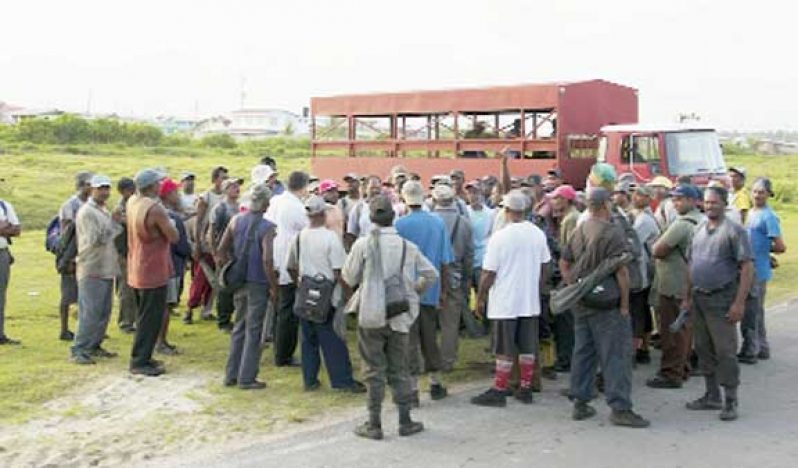The APNU+AFC government has announced that it is no longer able to finance the operations of the Wales Sugar Estate on the West Bank Demerara, forcing the administration to shut its doors.
Through the Government Information Agency (GINA) on Monday, January 18, the Ministry of Agriculture revealed that the investment required to refurbish Wales estate remains significant and the finances are simply not available.
“Diverting funds from the other estates to keep Wales afloat would seriously jeopardize the future of these estates. This cannot be allowed to happen,” the statement noted.
The statement further added, “It is impossible to make sugar production at Wales viable. This is made worse by the gloomy outlook for sugar prices for the foreseeable future. Wales estate is projected to make a loss of G$1.6 -$1.9 Billion in 2016. This coupled with the extent of refurbishment needed render this estate prohibitively costly to maintain.”
To protect the other estates, the Corporation has no alternative but to take the following action with immediate effect:
– No further land preparation and planting;
– As the estate’s cultivation is harvested, the land would be retired and held for other diversification ventures;
– The Wales factory would operate throughout 2016 milling both the estate’s and farmers’ canes. It will be closed at the end of the 2016 2nd crop.
– With effect from 2017, farmers’ canes will be milled at the Uitvlugt factory. During this year the routing of the farmers’ canes to Uitvlugt would be determined to ensure the least additional cost.
– Agricultural workers at Wales will be absorbed by Uitvlugt up to the extent of suitable vacancies on that location. Surplus labour would have to be made redundant.
– The same principle would apply to the other departments.
According to the government release, it was felt for many years, more so over the past ten years that the Corporation was diverting scarce resources from the estates to assist with the financing of the new Skeldon project.
“Additionally, the Corporation was denying the high productive estates funding as they propped up the poor performing ones. The result was a general decline in performance, production and financial, across the industry.”
The practice of diverting scarce funds from the good estates to keep the poor performers in operation can no longer be tolerated as the survivability of these estates could not now be guaranteed.
Wales is by far the estate in poorest shape. The details of its performance include:-
– 60% of its D&I infrastructure is run down;
– 75% of the bridges are in poor shape;
– The cultivation is also in poor condition;
– The factory is old and in need of major investment.
It was noted that the Guyana Sugar Corporation (GuySuCo) will be exploring the feasibility of alternative ventures utilizing the Wales lands.
“The important criteria for such projects would be wealth creation and employment generation. It is hoped that the first of such projects could commence by October 1, 2016.”
It was further noted that such a course of action has nothing to do with the recommendations of the Commission of Inquiry (COI) into the sugar industry, though the COI report does make reference to the Corporation’s plans for 2016.




.jpg)









